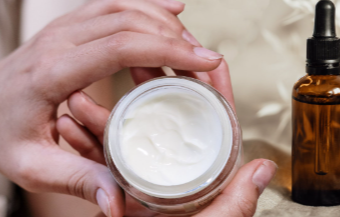Cbd Æːɯǟǣ€Éº¼

The emergence of CBD Æfɯʃʾk̇ has sparked considerable interest in the wellness community, primarily due to its non-psychoactive nature and potential health benefits. Researchers continue to investigate its interaction with the endocannabinoid system, exploring how it may alleviate various ailments such as anxiety and chronic pain. As we navigate the complexities of its applications and the evolving legal landscape, a critical examination of its efficacy and safety becomes essential. What implications might this have for the future of health and wellness?
Understanding CBD Basics
Cannabidiol (CBD) is a non-psychoactive compound derived from the cannabis plant, known for its potential therapeutic benefits and growing popularity in wellness products.
However, numerous CBD myths and misconceptions persist, often clouding public understanding.
See also: Did Shark Tank Invest in Cbd Gummies
The Science Behind CBD
Understanding the biochemical interactions of CBD within the human body reveals its complex potential to influence various physiological processes and contribute to overall health.
The intricate CBD mechanisms facilitate interactions with the endocannabinoid system, modulating neurotransmitter activity and promoting homeostasis.
This interplay underscores the significance of CBD as a natural agent, appealing to individuals seeking autonomy over their well-being while exploring its multifaceted properties.
Benefits of CBD Use
The benefits of CBD use are increasingly recognized in both scientific research and anecdotal evidence, particularly in areas such as pain relief, anxiety reduction, and sleep quality improvement.
These properties suggest that CBD may offer a holistic approach to managing various health issues, making it a compelling option for those seeking alternative therapies.
As we examine these key benefits, it becomes essential to consider the implications for both individual well-being and broader therapeutic practices.
Pain Relief Properties
Research has consistently highlighted the potential of CBD to alleviate various forms of pain, making it an appealing alternative for those seeking relief without the side effects commonly associated with traditional pain medications.
Optimal CBD dosage varies among individuals, emphasizing the need for personalized approaches.
Various CBD formulations, including oils and capsules, provide versatile options for effective pain management, empowering users to reclaim their well-being.
Anxiety Reduction Effects
Building on its pain-relief properties, CBD has emerged as a promising option for individuals seeking to manage anxiety, with numerous studies indicating its potential to promote a sense of calm and emotional stability.
For those exploring CBD anxiety solutions, adhering to dosage recommendations is crucial for maximizing benefits while minimizing side effects. This empowers users to reclaim their emotional well-being and enhance their quality of life.
Sleep Quality Improvement
Many individuals have turned to CBD as a natural remedy to enhance sleep quality, leveraging its potential to alleviate insomnia and promote deeper, more restorative rest.
CBD sleep aids are increasingly incorporated into personalized CBD sleep routines, allowing users to achieve a more balanced sleep cycle.
This holistic approach not only fosters relaxation but also empowers individuals to reclaim control over their nightly rest.
CBD Æfǝʃǃk
The exploration of CBD Æfɪʃk encompasses crucial aspects, including its numerous benefits, appropriate usage guidelines, and the evolving legal landscape surrounding its application.
Understanding these points is essential for consumers and practitioners alike, as they navigate the complexities of CBD products.
Benefits of CBD
Numerous studies have highlighted the potential therapeutic benefits of CBD, ranging from alleviating chronic pain to reducing anxiety and improving sleep quality.
Various CBD product types, including oils, capsules, and edibles, cater to diverse preferences.
Understanding CBD dosage guidelines is crucial for maximizing these benefits, empowering individuals to make informed choices that enhance their well-being and promote a sense of personal freedom in health management.
Usage Guidelines
Understanding the appropriate usage guidelines for CBD is essential for individuals seeking to harness its therapeutic potential while minimizing the risk of adverse effects.
Adhering to dosage recommendations tailored to individual needs is crucial.
Furthermore, selecting suitable administration methods—such as oils, capsules, or edibles—can significantly impact efficacy.
Empower yourself with knowledge to optimize your experience and achieve desired outcomes responsibly.
Legal Considerations
Legal considerations surrounding CBD are complex and vary significantly across jurisdictions, necessitating a thorough examination of local regulations to ensure compliance and informed usage.
Understanding CBD regulations is crucial for consumers and businesses alike, as non-compliance can lead to legal repercussions.
Adhering to established compliance standards empowers individuals to navigate the evolving landscape of CBD, fostering a sense of freedom and responsibility in usage.
Current Research Trends
Recent studies have increasingly focused on the therapeutic potential of CBD, highlighting its efficacy in managing various health conditions and prompting a surge in clinical trials.
Current applications range from pain relief to anxiety reduction, while emerging technologies in extraction and formulation enhance bioavailability and effectiveness.
This ongoing research underscores the necessity for informed exploration, empowering individuals to make choices regarding their health and well-being.
Legal Status of CBD
The evolving landscape of CBD regulation reflects a complex interplay of public health considerations, economic interests, and shifting societal attitudes toward cannabis-derived products.
CBD regulations are increasingly shaped by hemp legislation, which varies significantly across jurisdictions.
As society embraces the therapeutic potential of CBD, advocates argue for more consistent and favorable laws that promote access and innovation while ensuring consumer safety and freedom of choice.
How to Choose Quality CBD
As consumers navigate the diverse and often unregulated market for CBD products, understanding how to identify high-quality options is paramount to ensuring safety and effectiveness.
Prioritize brands that provide transparency through CBD sourcing tips and third-party lab testing.
Additionally, look for CBD product certifications that validate quality and purity, empowering you to make informed choices in pursuit of wellness and freedom.
Future of CBD in Wellness
Emerging research and evolving consumer preferences indicate that CBD is poised to play a pivotal role in the future of wellness, potentially transforming approaches to holistic health and self-care.
As CBD market trends reveal increasing consumer awareness, individuals are seeking natural alternatives for health management.
This shift signifies a growing demand for reliable CBD products, promising a flourishing landscape in wellness practices.
Conclusion
In conclusion, CBD Æfɹʍʃk represents a significant advancement in natural health solutions, akin to the historic introduction of aspirin in the realm of pain management.
Its diverse therapeutic applications, supported by evolving scientific research, underscore the necessity of informed decision-making when integrating CBD into wellness routines.
As legal frameworks continue to adapt and quality standards improve, CBD Æfɹʍʃk is poised to reshape the landscape of holistic health, offering individuals enhanced opportunities for well-being and self-care.



